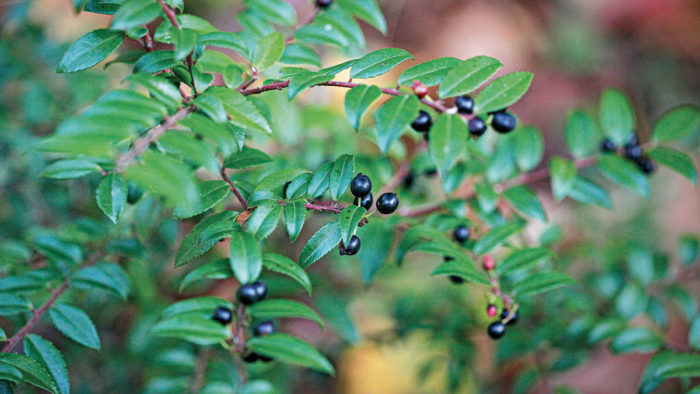
Gardeners love native plants, and for good reason. They are built to thrive in the conditions of a specific region, often without complaint, and are an essential component in the preservation of wildlife and the overall ecology of a region. The world of native plants, however, can be a complex one to navigate. Just because you live in an area where a native plant occurs naturally, doesn’t mean it will thrive in your beds and borders. Here are trees and shrubs, for various different soil and light situations, recommended by a qualified native plant expert from the Northwest.
Vine maple
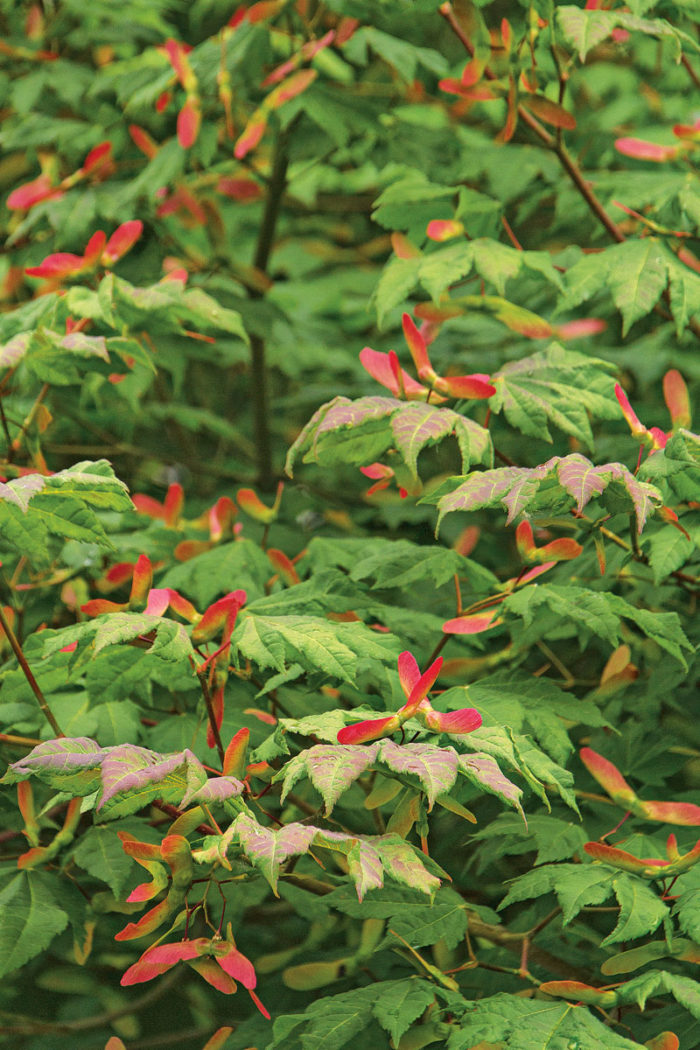
Name: Acer circinatum
Zones: 5–8
Size: 15 to 20 feet tall and 15 to 18 feet wide
Conditions: Full sun to full shade; adaptable to clay or sandy soil; drought tolerant once established
Native Range: Pacific Coast from Northern California to southwestern British Columbia
Easily grown and highly adaptable, vine maple is one of our best garden choices for a small tree. Typically grown as a multistemmed plant, it makes a graceful and interesting specimen. In shade the stems are bright green year-round, while in sun the bark ages to a smooth gray. The spring growth is bright green with charming small red flowers. The leaves are a mix of orange, red, and yellow in autumn. Vine maple is extremely adaptable to various growing conditions, but it achieves the best fall color in full sun to partial shade.

Flowering currant
Name: Ribes sanguineum
Zones: 6–9
Size: 6 to 8 feet tall and 5 to 6 feet wide in 10 years
Conditions: Full sun to partial shade; average to dry, well-drained soil
Native Range: Pacific Coast from Northern California to southwestern British Columbia
A herald of spring, flowering currant is a welcome delight as delicate chains of flowers in shades of pink, cherry red, or ivory white hang on bare branches. The open blooms have a unique, spicy fragrance and are often followed by dark blue-black fruit that is loved by birds. The early season hummingbirds also love the flowers and flock to blooming plants. Flowering currant is drought tolerant once established and is very resistant to deer browsing.

Evergreen huckleberry
Name: Vaccinium ovatum
Zones: 7–9
Size: 4 to 5 feet tall and wide in 10 years
Conditions: Full sun to full shade; fertile, well-drained soil
Native Range: Pacific Coast from Northern California to southwestern British Columbia
This huckleberry is simply the best of our native shrubs. The evergreen foliage is dark green and shiny. In early spring, small pink buds open to gleaming white flowers, often accented with red-to-bronze new growth. If left to grow on its own, a lovely layered shrub will develop, but amazingly it can be sheared to make a tight formal hedge. If this were not enough, in late summer this deer-resistant shrub bears delicious blue-to-black berries in profusion. These berries are excellent for pies, jams, or eating fresh off the bush.
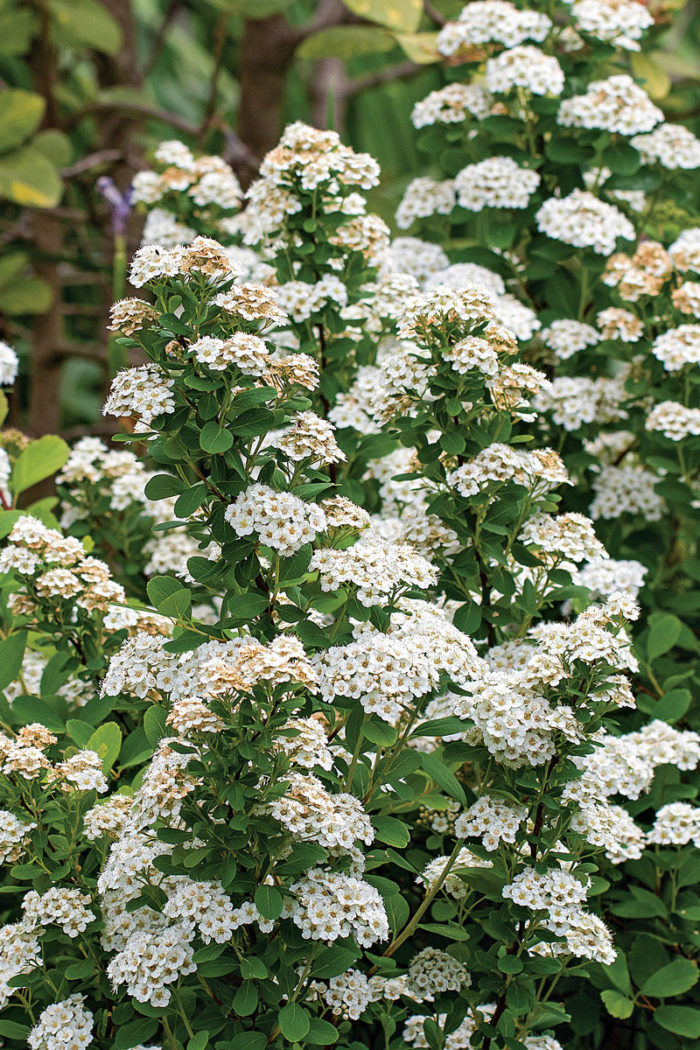
Birchleaf spirea
Name: Spiraea lucida (formerly S. betulifolia var. lucida)
Zones: 4–9
Size: 3 feet tall and 3 to 4 feet wide in 10 years
Conditions: Full sun to partial shade; moderately moist, fertile, well-drained soil
Native Range: Northwestern United States and Southwestern Canada
This extremely hardy, deer-resistant shrub is a choice plant for the urban garden. It forms low mounds of rich green foliage reminiscent of tiny birch leaves. In early summer, clusters of tiny white flowers add a touch of brightness to the landscape. A light shearing after bloom will remove spent blooms and make a dense shrub. In autumn, the leaves turn shades of red and orange. Birchleaf spirea appreciates occasional watering during dry periods as well as protection from intense late afternoon sun.
Richie Steffen is executive director of the Elisabeth C. Miller Botanical Garden in Seattle.






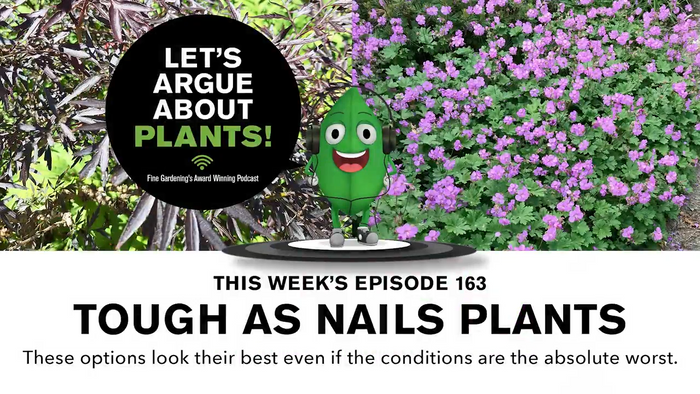
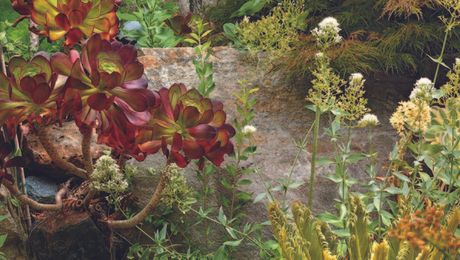
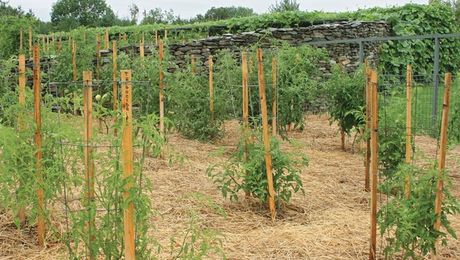









Comments
Log in or create an account to post a comment.
Sign up Log in